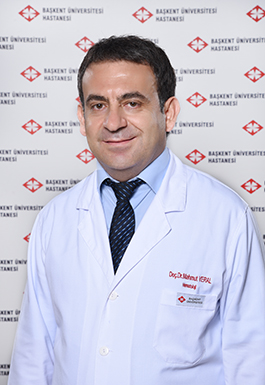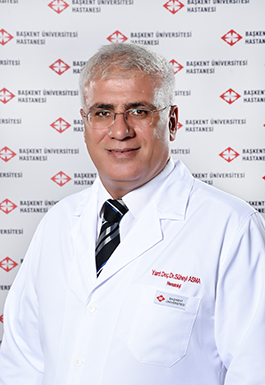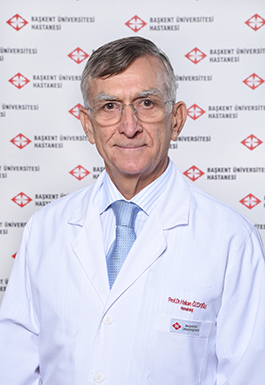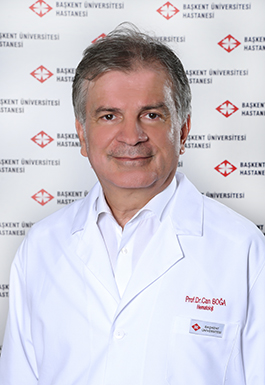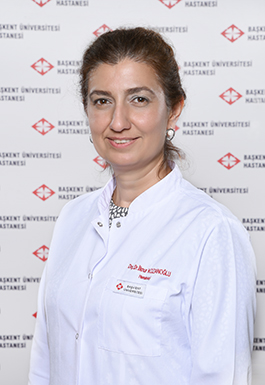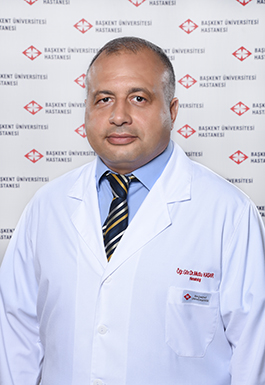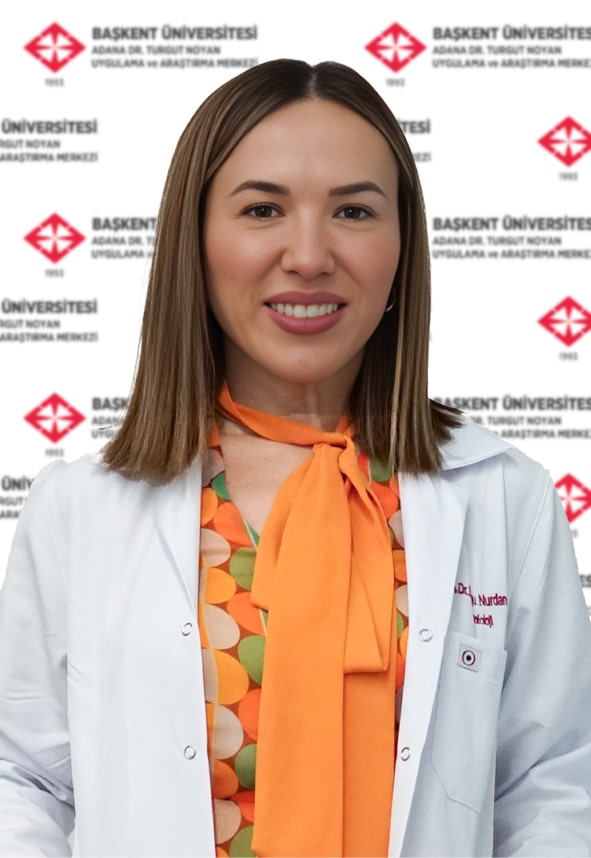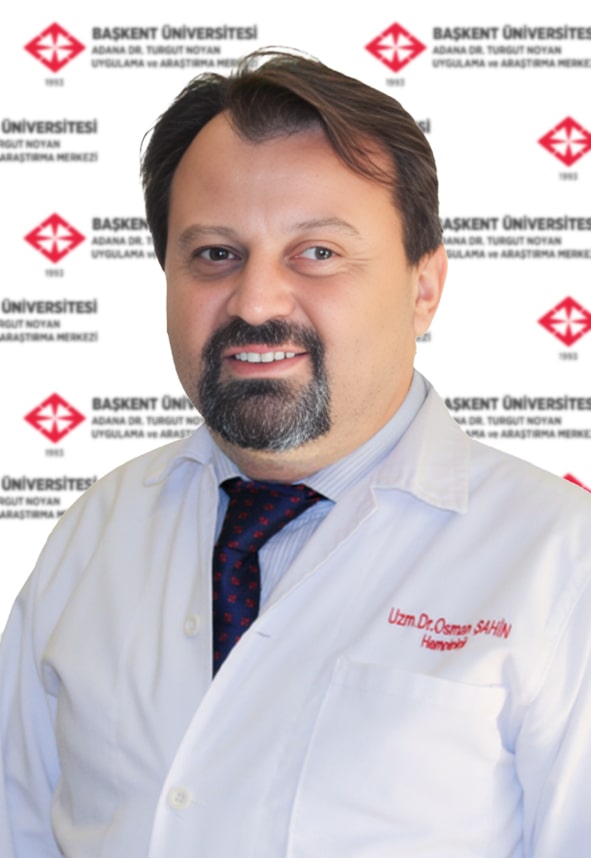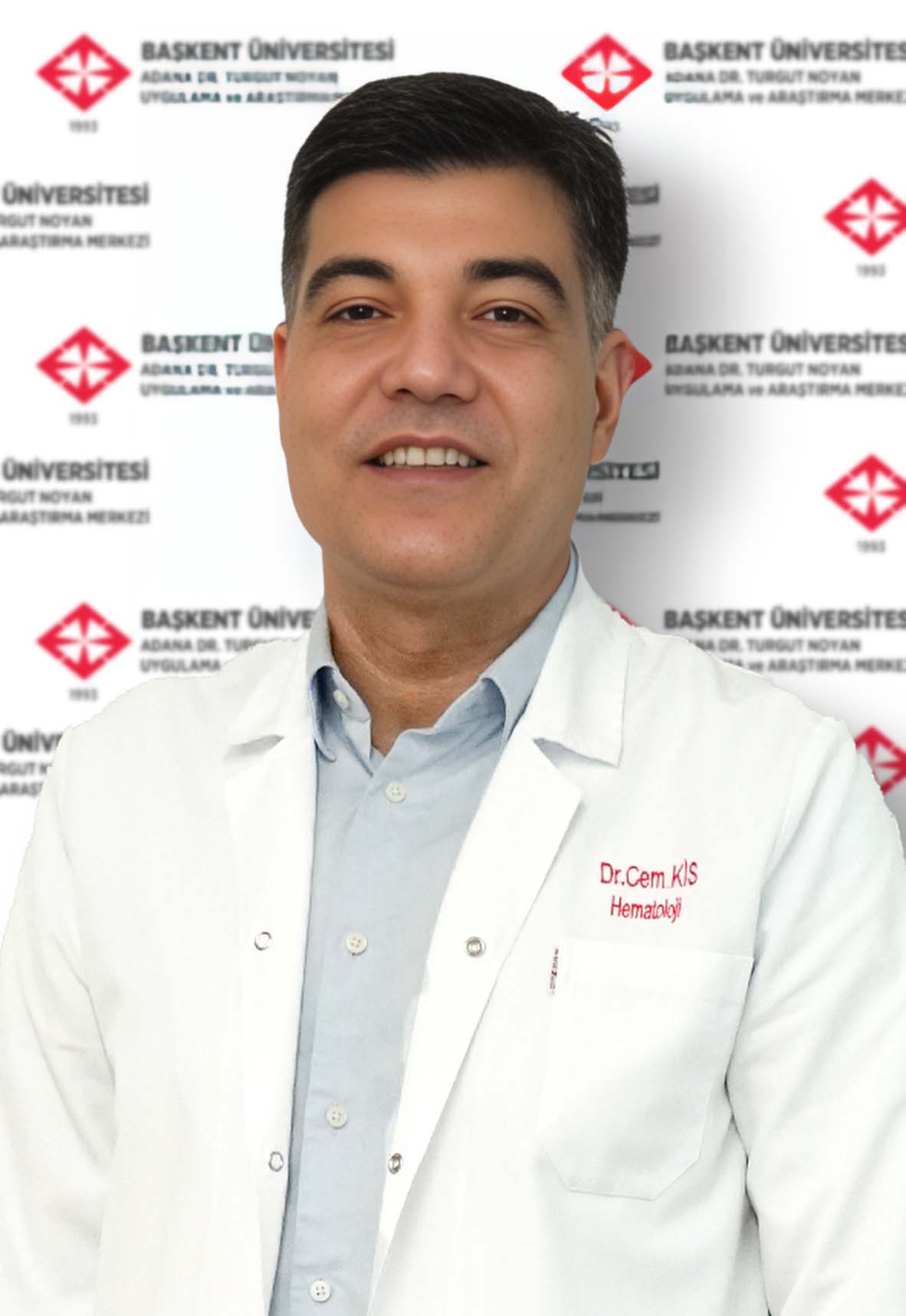Adult Bone Marrow Transplant and Cellular Therapy Center
In our hospital, located in the main building (Building A) on the 8th floor in Yüreğir, we have a dedicated bone marrow transplant service. Our clinical unit includes 6 isolation rooms designed to protect patients from microbial contamination. Four of these isolation rooms are specifically equipped for allogeneic (from a suitable donor) transplants and meet the standards with HEPA filters. Considering the prolonged stay of patients in these rooms, amenities such as a refrigerator, digital TV with channels, video phone, movable bed, and sofa bed are provided.
Patients in the transplant room are closely monitored through a central monitor at the nurse's desk. The goal for patients who cannot achieve lasting recovery with known treatment methods is to develop cellular therapy techniques that are entirely compliant with ethical values and evidence-based medical rules, and that are appropriate to the natural biology and mechanisms of diseases.
We meet the treatment expectations of patients planned for bone marrow transplantation at world standards. We work in harmony with other transplant centers, play a positive role in bone marrow transplant research, and contribute to developments in the field of bone marrow transplantation.
Patients undergoing treatment are informed about the stem cell support taken from themselves for high-dose therapy or about bone marrow-derived stem cell transplantation from a suitable donor. Before the start of the transplant procedure, information about the intended treatment method is provided to the patient, their family, and if there is a suitable donor, to the donor as well.
Family information is provided in two ways: An appointment for a family meeting is arranged by the transplant coordinator. The bone marrow transplant center’s manager or medical manager, staff doctors, the transplant coordinator, and, when necessary, the managers of the cell collection or cell processing units participate in the family meeting.
If deemed necessary by the transplant manager, before organizing the family meeting, an informational animation prepared by the transplant coordinator about the basic logic of transplantation, the transplant process, and side effects is shown to the patient, their family, and donors. During the family meeting, information is provided about the current diagnosis of the disease, the current status of the disease (whether it responds to medical treatment), and the treatment methods considered for the next stage. The advantages and disadvantages (side effects) of the planned bone marrow transplant treatment method compared to other treatments are discussed. At the end of the meeting, a 48-hour period is given for reading and thinking about the information provided, and they are asked to inform the transplant coordinator of their decisions. Consent is obtained both for the transplant procedure and for sharing the patient's medical information with relevant centers.
Donor Information
If sibling or relative donors consent without any influence, their pre-examination and tests are completed, and if no contraindications are found, the preparation phase begins. For the donor to decide on stem cell collection consent without any influence, an information meeting is arranged both individually and with the family during the family meeting. Potential side effects of the stem cell collection process and related medications, although rare, are informed to the donors during this briefing.
Right to Withdraw Consent
Patients are reminded of their right to withdraw from the transplant process at any time before and even after consent is given.
Donor Requirements
Donor candidates (selection of donors): Depending on the type of transplant applied, the source of bone marrow-derived stem cells can be the patient themselves (autologous) or, most often, an HLA tissue group fully compatible sibling. If there is no suitable tissue group compatible sibling, voluntary donors determined through non-relative screenings are informed about the contemplated bone marrow-derived stem cells, and consent is obtained.
The donor information and consent process include the following criteria:
- Risks and benefits of the procedure,
- Tests and procedures carried out to protect the health of the donor and recipient,
- Donor's rights to review these tests,
- Alternative collection methods,
- Protection and confidentiality of the donor's medical information,
- Opportunity for the donor to ask questions,
- Donor's right to refuse donation and the consequences for the recipient in case of refusal.
Donor candidates are asked questions to identify any hereditary diseases, infectious diseases, and history of malignant diseases. They are then examined.
All donors are tested for ABO group and Rh typing. Female donor candidates of childbearing age are screened for pregnancy. Infectious disease tests are conducted 30 days before cell collection.
In the case of minor donors, an informed consent document is obtained and documented from the donor's parent or legal guardian according to current laws and regulations.
All laboratory tests for donors, including tissue typing laboratory, are conducted by one or more donor screening tests in a laboratory accredited or approved according to current laws and regulations. The suitability and eligibility of allogeneic donors are communicated in writing to the collection and processing units.
